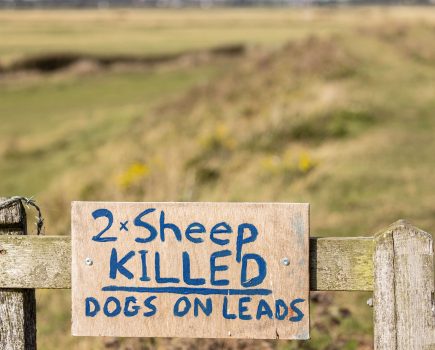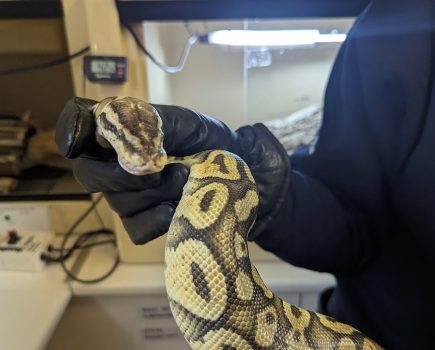Carol Harris on pig husbandry and Berkshires
Did you make a New Year’s resolution to take more exercise, lose weight, eat a healthier diet or generally keep fitter? Did you resolve to keep your house cleaner? Did you decide to take out a membership to a local gym? Did you say you would join a social club so you could meet friends and enjoy doing things with other people? If so, you’re not alone – many, many people make similar resolutions, because they know that our quality of life depends on our health and well-being. Not all of us keep these resolutions, however, and we often suffer ailments and a general feeling of being slightly below-par as a result. At least, if we don’t keep our resolutions, it only affects ourselves (unless we become so incapacitated that we are a drain on resources for our family and the health service). But if you fail to keep your animals in good health, they can suffer through no fault of their own. Keeping your pigs healthy is an important aspect of looking after them. A healthy pig is happy and lively, produces better quality meat and costs less to maintain. So good husbandry is important.Traditional pigs are generally hardy and disease resistant, as long as they’re kept in good conditions – suitable and well-maintained ground and housing, appropriate stocking densities, adequate food and water and freedom from stress. Defra has a Code of Recommendations for the Welfare of Livestock and produces a code on the welfare of pigs. The welfare of pigs is considered within a framework developed by the Farm Animal Welfare Council and is known as the Five Freedoms, and these are:
1. Freedom from hunger and thirst.2. Freedom from discomfort.3. Freedom from pain, injury or disease.4. Freedom to express most normal behaviour.5. Freedom from fear and distress.
And to ensure your pigs’ welfare and continued good health, there are some specific things you can do. For example…Keep pigs in good conditions• Make sure their housing is well constructed, large enough for the number of pigs you’re keeping, clean, dry and warm. • Avoid excessive dust by making sure houses are cleaned out regularly, and bedding is dust and mould-free.• Make sure air circulation in houses is adequate.• Make sure any electrical equipment is out of pig-reach.• Make sure no surfaces have paints or wood-preservatives that are hazardous to animals (especially old paint that is lead-based). • Make sure that fresh, clean water is readily available at all times, and that water and food containers are cleaned regularly.• Avoid rodents and birds coming into your pig housing by making sure there isn’t any uneaten food left there, and by removing any started nests from barns or farrowing sheds if wild birds do fly in – they like the warmth and often try to nest on ledges or pipes high up. Also, be careful not to put rat or mouse poison down where pigs can get to it.• Rotate your pig areas regularly so that the ground does not get ‘pig-sick’ and harbour worms or infectious organisms. Make sure that pigs don’t have to live on ground that becomes so boggy that they get stuck in it or strain their joints trying to walk through it. Avoid stress• Keep pigs in social groups, with at least one companion, rather than in solitary accommodation (unless for short periods, such as isolation or a boar between ‘assignments’, and then, make sure they can still see and hear other pigs). • Avoid sudden and unexpected loud noises.• Don’t put new pigs in with pregnant sows.• Don’t use rough treatment when handling your pigs – coax rather than intimidate when moving them. • Avoid travelling very long distances to abattoirs, and also avoid leaving pigs in hot trailers without shade or air-flow. Check them dailyWhen you keep animals, you will become used to noticing small things about them that probably wouldn’t be obvious to the casual observer. This may include:• Their level of activity – are they lively and active, or sluggish and apathetic?• Their movement – are they steady on their feet, or are they stiff or lame?• Their behaviour – do they seem anxious or aggressive rather than calm and showing sociable behaviour?• Their posture and ‘expression’ – although pigs don’t have very expressive faces, it’s still possible to notice a slightly different demeanour – for example, a hunched back, slightly shut eyes or other aspects of their appearance that seem different.• Their general appearance – is their coat in good condition, are their eyes clear, is their breathing normal, are they free from discharges from nose, mouth, eyes or vagina? And are they free from any wounds, swellings, sunburn, or abnormal conditions of the skin or coat? • Their eating habits – are they eating and drinking normally (with good appetite) or are they unwilling to eat their food or to drink? Are they overeating or drinking or, worse still, being sick when eating?• Their elimination habits – are they urinating or dunging excessively, or very little, and is the colour of what they pass unusual?Finding symptomsIf you find unusual symptoms, take action accordingly. Some things you can do are:• If you suspect an infection, you can take the animal’s temperature (using a thermometer in the rectum). If it’s abnormally high or low, you will probably need to call a vet. A pig’s temperature averages around 102°F (around 39°C), although it can be a little higher or lower in different animals• If you suspect heat-stroke, you should cool the animal by sponging or spraying with cool water – but not throwing buckets of water over them which can shock the system and possibly kill the animal – and then apply a soothing cream.• If you suspect a broken bone or major wound, isolate the animal and call your vet immediately, and if there’s substantial bleeding, try to reduce it by applying pressure at the relevant point if possible. Be very careful when getting close to an injured animal in case it becomes aggressive through pain and stress. Also, be careful about trying to separate animals that may have been fighting in case you get injured in the process. There are many other diseases and ailments that can affect pigs and, if you’re embarking on pig-keeping, it’s worth buying a specialist book on pig health so you can learn more about the subject. And if you can find a vet who knows about pigs, treat him or her like gold dust!When treating animals, you have various choices, the most significant being between ‘conventional’ or ‘natural’ treatment methods. Conventional methods are usually by licensed pharmaceuticals or over-the-counter treatments and preventatives. You can easily learn to give injections and may wish to keep a small supply of treatments such as wormers, antibiotics and anti-bacterial sprays, on your premises, but only give treatments if you’re absolutely certain they are correct, or after following veterinary advice.Natural treatment methods include herbal remedies, homoeopathy and a range of healing treatments such as Reiki. If you have an acute condition, such as pneumonia for example, I would always recommend you use conventional treatment – it acts faster than natural methods, which often harness the body’s own resources rather than simply providing an intervention. However, natural treatments are superb in many cases and I personally use and recommend aloe vera products (including oral and topical preparations) for many conditions, having had excellent results from them with many animals, including dogs, horses and pigs. Aloe acts as an anti-inflammatory agent, helps balance the immune system, assists wound-healing, decreases itching and bleeding, helps with skin and gut conditions and much more besides. I would be happy to let any interested readers know more about aloe if they contact me (info@pentrepigs.co.uk). When treating pigs you must, by law, keep records of medical treatments given, including the date, the medication used and any relevant withdrawal period. The withdrawal period relates to the time after treatment during which meat from the animal can’t be used for consumption.Remember bio-securityThis means taking precautions against the spread of disease. If you have what is referred to as a ‘closed herd’ – your animals never come into contact with other pigs – you’re unlikely to suffer from some of the diseases that can be transmitted from animal to animal. There are, however, some simple actions you can take to minimise any risk of infection, either to your own pigs or to those of other people. Here are a few things you can do in this respect:• Keep your pig areas, houses and equipment clean, tidy and disinfected.• Keep any food in containers that are vermin-proof.• Remove any uneaten food quickly, so that it doesn’t attract vermin.• Keep your clothes (especially boots and gloves) clean and disinfected.• Remember to clean and disinfect your trailer after visiting shows or other premises with pigs, and also after taking animals to an abbatoir (the last is a legal requirement, within 24 hours). • Don’t feed prohibited food to your animals (mainly meat or meat products) as this can possibly result in disease transmission.• Keep treatment items (syringes, needles, thermometers and so forth) clean and disinfected and dispose of medical waste correctly, especially used needles.• Isolate any animals that are showing signs of infectious illness.
• Avoid bringing unhealthy animals into contact with your own pigs and isolate any newcomers for a period to make sure they’re not incubating any disease.• Avoid buying pigs from sources that have dubious bio-security themselves.• Make sure that visitors don’t come into contact with your pigs if they’ve been in contact with sick pigs, and try to ensure that people also have clean and disinfected boots when visiting.• And be sure to take the same precautions yourself when visiting other farms or smallholdings that have pigs. This article is from the May 2006 issue of Country Smallholding magazine. << To order back issues click the link to the left.







